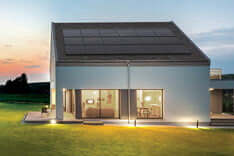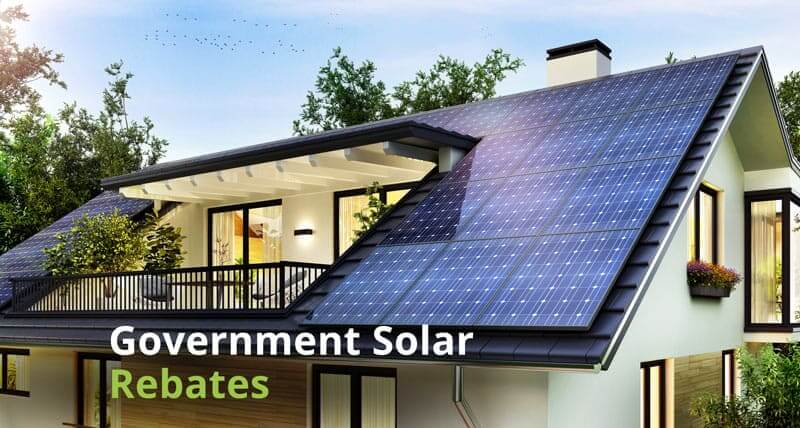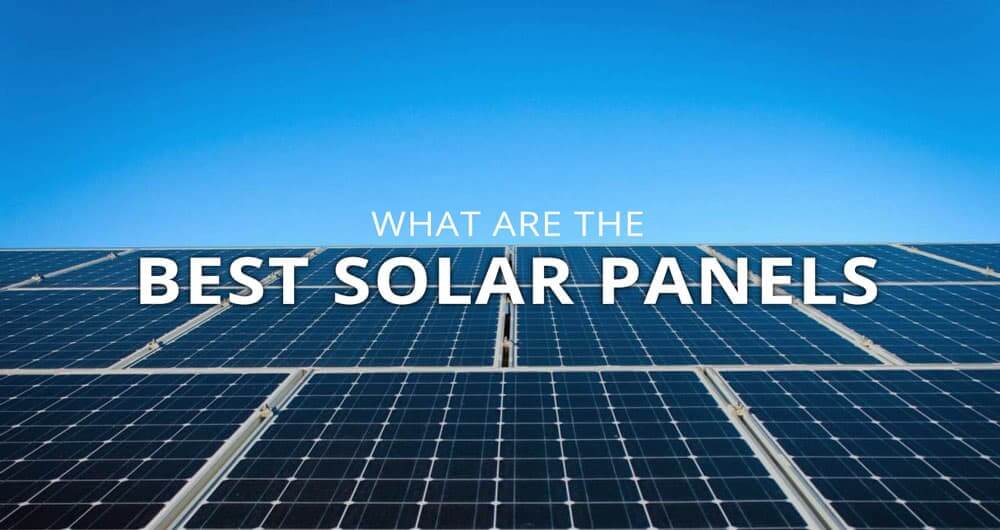Home Solar Collector v Solar Panel
Solar Collector vs Solar Panel
Solar panels and solar collectors alike convert sunlight into energy.
A solar collector absorbs the sun’s light and converts it to heat. Solar panels absorb sunlight and convert it to electricity.
In more detail, let us look at the differences between solar collectors and solar panels.
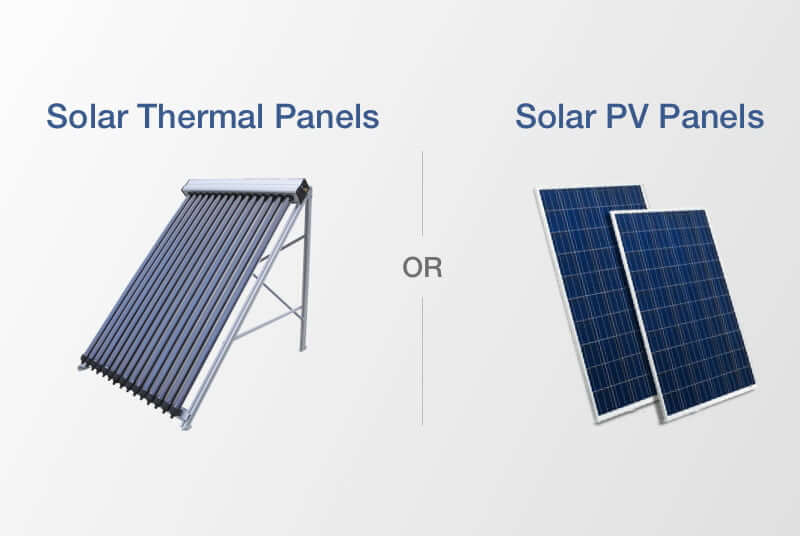
Table of Contents
ToggleDifference between solar collector and solar panel
| Solar panel | Solar collector |
|---|---|
| Converts sunlight to electricity to power a home. | Converts sunlight to heat to provide hot water and space heating to a household. |
| Little maintenance is required. | Requires significantly more maintenance to change the working fluid in the tubes. |
| Available in panel shape. | Available as a panel, parabolic dish or tower of panels. |
| Efficiency at 19%-25%. Solar panels convert up to 25% of the sunlight they absorb to electricity. | Efficiency at 80%-90%. Solar collectors convert up to 90% of the sunlight they absorb into heat. |
| Uses inverters to convert the sunlight and heat into light. | They have a darkened panel that traps absorbed light and a working fluid that transmits the converted heat. |
| Proper installation angle and orientation ensures that solar panels can absorb sunlight throughout the day. | Have sun tracking capabilities to follow the sun as it moves along the sky during the day. It ensures that it absorbs as much sunlight as possible. |
| Occupies a lot of space on the rooftop. You need 15-30 panels to provide sufficient electricity for your home. | Requires little space on your roof. You only need one or two depending on the size of your house. |
| Do not freeze during winter. | The working fluid in the collector is likely to freeze unless it is changed. |
| High initial costs. Solar PV systems are expensive. | Affordable to purchase and install. |
| Electricity can be easily stored in solar batteries. | Hot water is not stored for long. The longer it is left unused, the colder it becomes. |
| Operate throughout the year. They can produce electricity even on cloudy and cold days. | Need the sun to shine at all times for them to produce heat. |
Similarities between solar collector and solar panel
- Both the solar panels and the solar collectors use solar energy. Each relies on the sun to perform its different functions.
- Can be installed on the roof or on the ground depending on the available space and where the sun falls.
- Lower your carbon footprint as you rely on renewable and emission-free energy.
- Require a professional to install.
Are solar collectors worth it?
Solar collectors are worth it, depending on where you live and how you use water. As heating water is one of the big energy saps of a household, they will save you hundreds of dollars on your electricity bill annually.
Industries that need hot water consistently can install solar collectors to heat their water. They are affordable and have a long lifespan, enabling users to earn back their investment in a few years.
Solar collectors are worth installing in your home for their several advantages to a household or factory.
How do solar collectors work?
Solar collectors absorb sunlight and convert it to heat. The heat is then used to warm your home or heat water.
The solar collector has a black absorber plate that absorbs and traps solar radiation.
The collector has a working fluid made up of water and antifreeze. The working fluid gets heated and moves along the pipes into the water tank connected to the solar collector. This is where the household water gets heated.
The working fluid then flows back to the collector for reheating before it flows into the water tank again.
Type of solar collectors
- Concentrating and
- Non- concentrating solar collectors.
Advantages of solar collectors
- Space saving. Compared to solar panels, solar collectors use little space on your roof. Solar panels use up to 10m2 of your roof while collectors use only 2m2 or 3m2.
- High-efficiency rates and can convert up to 90% of the sun it traps in the collector.
- Businesses can benefit more from solar collectors than solar PV panels.
- Reduce carbon footprint
- Shorter payback time
- Solar savings
Disadvantages of solar collectors
- Does not work efficiently in cold weather.
- Not as versatile as solar PV panels.
- Best only for water heating.
How do solar panels work?
Solar panels absorb sunlight and convert it to energy. When sunlight shines on the solar panel’s surface, the PV cells in the solar panels absorb the energy from the sun. Here is a step-by-step outline of how solar panels work.
- Sunlight shines on the solar panels and activates them. The solar cells, also called photovoltaic cells, absorb the sunlight.
- The solar cells have a thin semiconductor wafer that produces an electrical current.
- A solar inverter converts the electrical energy produced from direct current (DC) electricity to alternating current (AC) electricity.
- The converted energy powers your home.
- Your electricity usage is measured by a net meter.
Advantages of solar PV systems
- Save on your electricity bills.
- No maintenance is required
- Energy independence
- Versatility as it provides lots of electricity.
Disadvantages of solar PV systems
- High initial cost to acquire and install solar panels.
- Long-term investment.
Hire a pro to install your solar PV and solar collectors
If you want to install a new solar system, here is a free tool that you can use.
Gosolarquotes.com is a free tool that connects homeowners to accredited solar panel installers.
- At the top of the tool, enter your zip code.
- Then, fill out the subsequent form to provide more information on your house size and electricity consumption.
- You will then receive three quotes from professional installers with no obligation to hire them. Compare the quotes and choose one of the installers to install the solar system for you.
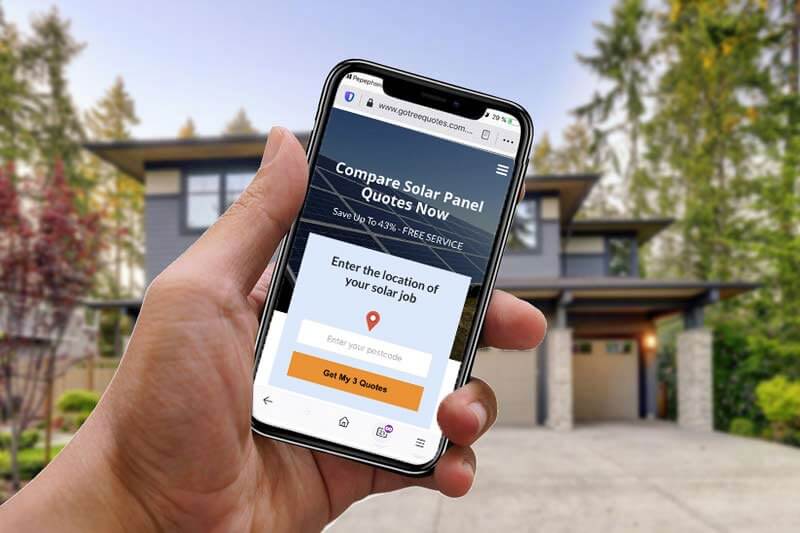
How does the use of solar collectors impact my property value
Many homeowners are looking for ways to reduce their electricity bills. One of the most effective methods is the use of solar.
Thus, installing solar collectors in your home increases its value. There will be more potential customers willing to buy it at a higher price if you sell it.
The more eco-friendly and energy efficient your property is, the higher its value.
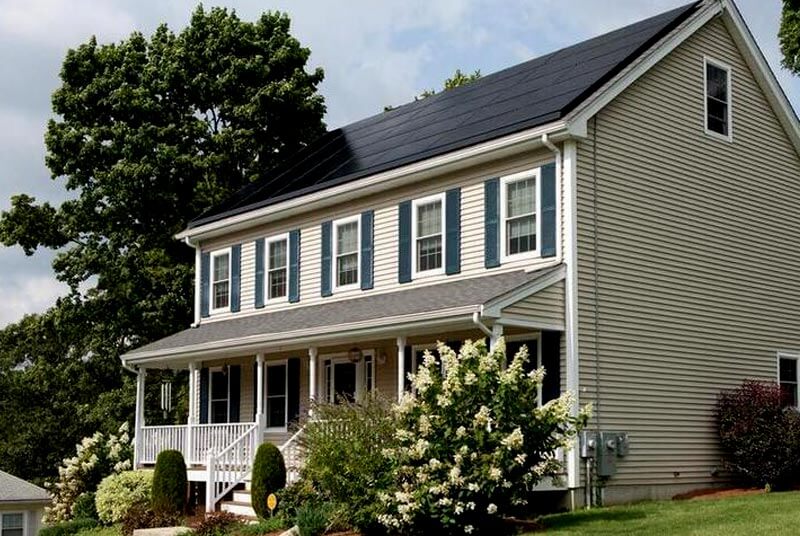
Do I need a permit to install solar collectors
You may require a permit depending on where you live and the type of solar collector you want installed.
However, most regions consider solar collector installation as permitted development. If you are unsure, consult a professional installer or check with your local county office.
How do you decide on the best part to install thermal collectors
The location of the installation is critical. The solar collector must be installed on the part of the roof with direct access to sunlight.
The best orientation for thermal collectors is southwards. It allows them sufficient sunlight throughout the day to heat your water effectively.
Professional installers conduct a site visit before installation. It ensures they can get the best part of the roof to install the collector. Shade affects the amount of sunlight that gets to it and its effectiveness.
Also, your water tank’s location affects the collector’s location. The solar collector must be close to the water tank. It ensures that the water is heated effectively.
Why do you need fewer solar thermal collectors than solar panels
Depending on the size of your house, you will need two solar collectors for effective domestic water heating.
However, depending on the size of your solar system, you need 15-30 solar panels to produce sufficient usable electricity.
Solar thermal collectors are highly efficient compared to solar panels. Hence the difference in the number installed on your roof.
Solar thermal collectors are 80% efficient while solar panels are only 25% efficient. Thermal collectors convert most of the solar irradiation that they absorb into heat. Hence, their higher efficiency rates.
What are the main causes of solar collector failure
There are many reasons why solar collectors fail. Regular maintenance ensures that any problems that could cause the solar collector to fail are identified and corrected.
- Sediment buildup. One of the problems that cause solar collector failure is sediment buildup. The more sediment on the collectors, the less irradiation is absorbed which reduces the efficiency of the collectors.
- Fluid leakage. Working fluid leakage is another problem that causes collector failure. Regular checkups and fluid addition help to maintain it in good working condition.
- Cold weather. In cold regions, the fluid is likely to freeze. Fluid change helps to maintain its antifreeze capabilities.
- Wear and tear. Age is a factor that lowers the efficiency of solar collectors. It may lead to wear and tear and a low supply of hot water in your home. Replace your solar collectors if you have had them for at least 25 years.
Table of Contents
Toggle
